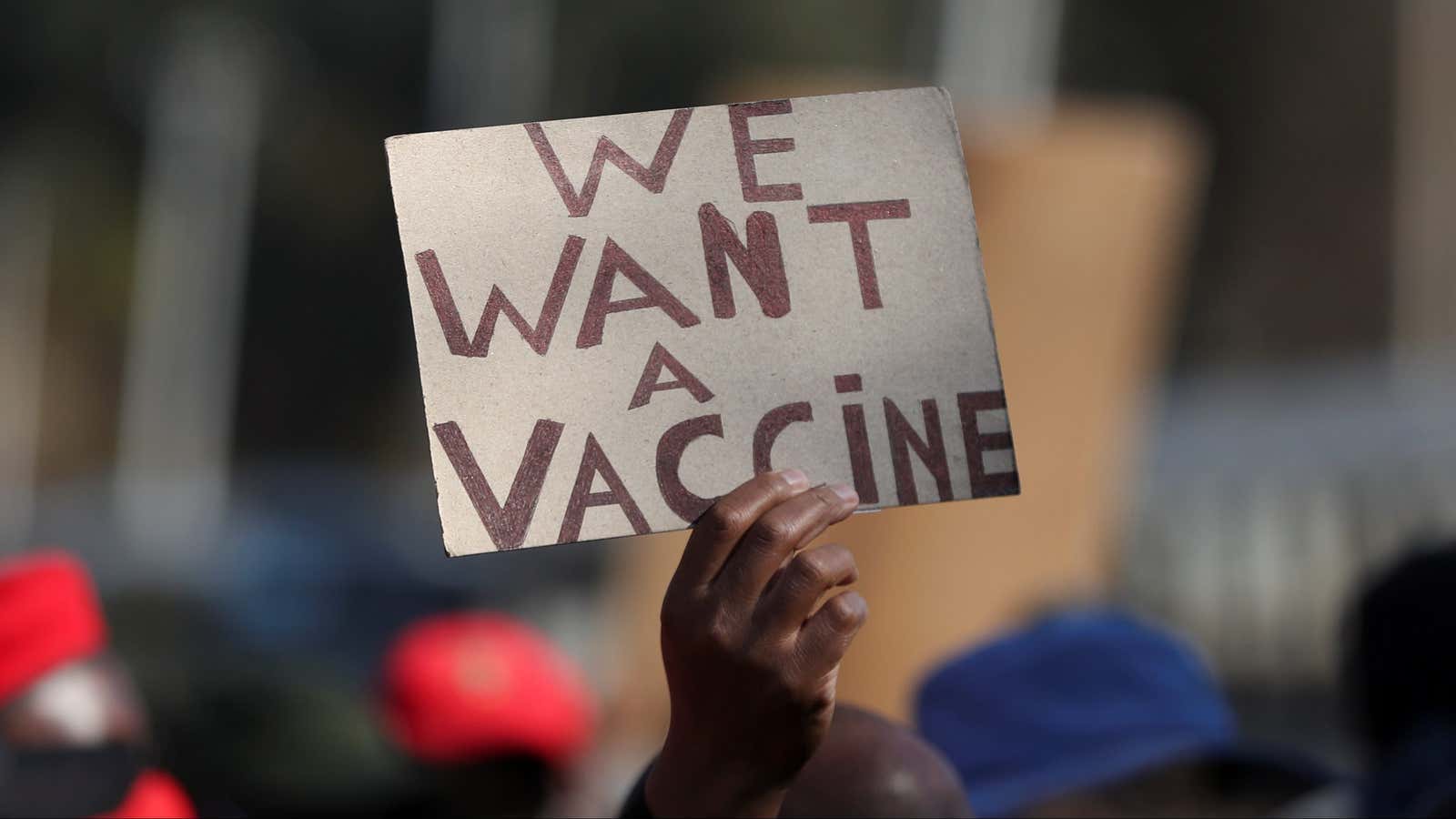More than 4.5 billion doses of Covid-19 vaccines have been administered across the world so far. Less than 200 million have gone to low-income countries.
In rich countries, 44% of the population are fully vaccinated. Vulnerable individuals are about to get a third booster shot, and a majority of those who have yet to receive a vaccine have decided not to get one, despite having access to it. In poor countries, only 1% of the population received a single dose, and even fewer received both. This is dangerous for the whole world.
More variants will emerge in low-vaccination settings
Rich countries already have secured enough doses to cover their populations several times around. Recent commitments such as the billion doses promised to poor countries after the G7, or Canada’s latest announcement of a 10 million doss donation, are steps in the right direction but continue to be insufficient. Further, the very plan of donating excess doses, no matter how many, exposes the inequity of the plan. It isn’t about equitable global distribution, but about offering poor countries leftovers.
But if the moral argument for better distribution has not sufficed, perhaps wealthy countries will listen to this: Leaving poor countries without vaccines represents a global security threat.
We already know that in countries with low vaccination rates, especially where protective measures such as social distancing are hard to enforce, deadly new variants emerge. This happened in India, where the Delta variant emerged as outbreaks ravaged a country with low vaccination levels.
The danger is even higher in low-income African countries, where it isn’t just hard to come about vaccines, but even tests are scarce, so it’s virtually impossible to even identify the size of outbreaks once they occur. Leaving billions unvaccinated will eventually reverberate all over the world, protracting the pandemic and making Covid-19 increasingly harder to control. That is, unless rich countries plan to completely isolate themselves from the rest of the world, says Mosoka Fallah, the former director-general of the National Public Health Institute of Liberia and a researcher in global health.
There are cases of diseases, such as malaria or typhoid, that have vaccines or treatments in advanced economies yet continue to cause disease and even death in developing ones. But it’s impossible to predict whether Covid-19 will develop in a similar way, becoming especially dangerous in certain areas and disappearing from others. “The unknowns are too many, and we don’t know how this will end,” says Fallah. “The best way to predict the future is to look at the past, and we’ve seen Delta, we’ve seen what it’s done.”
The risk of state collapse
The risk isn’t just epidemiological either. “If Africa were to experience an outbreak of the level of India or Brazil, my worry is for state collapses,” says Fallah. The resources of most African nations aren’t enough to sustain the social and economic shock of large Covid-19 outbreaks, and the risk of rough political actors taking advantage of the situation is very high.
During the first stages of the pandemic, countries such as Uganda, Zimbabwe, or South Sudan have seen how easily lockdowns can be used as political tools to silence democratic debate, and more serious outbreaks can easily destabilize countries that have precarious healthcare systems and fragile economies.
This, too, risks having consequences globally. Instability, together with the economic consequences caused by the epidemic, would likely lead to displacement, causing refugee crises, and leaving people vulnerable to terrorism and other political manipulation.
Sign up to the Quartz Africa Weekly Brief here for news and analysis on African business, tech, and innovation in your inbox.
